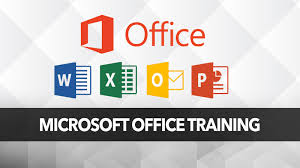In today’s fast-paced digital world, proficiency in Microsoft Office is essential for students, professionals, and business owners alike. Whether you are drafting reports, analyzing data, creating presentations, or communicating with colleagues, mastering the tools provided by MS Office can significantly boost your productivity. Among these tools, Microsoft Excel stands out as one of the most powerful and widely used applications. In this article, we’ll explore the importance of an MS Office course and delve into the specifics of an MS Excel course, highlighting how these courses can help you advance your career.
Table of Contents
ToggleWhy MS Office Skills are Important
Microsoft Office has become the industry standard for office productivity software, offering tools for word processing, data analysis, presentations, and more. A comprehensive MS Office course equips you with the knowledge and skills needed to utilize the various programs effectively. Here’s why learning MS Office is essential:
- Versatility: MS Office applications are used across all industries. Whether you’re in finance, education, healthcare, or creative fields, MS Office tools will help you manage your tasks efficiently.
- Job Requirements: Many employers list proficiency in MS Office as a basic requirement. Having this skill on your resume increases your job prospects significantly.
- Improved Productivity: Mastering MS Office programs allows you to complete tasks faster, manage data more effectively, and communicate ideas clearly, leading to better performance at work or school.
- Collaboration: MS Office’s cloud-based features, like OneDrive and SharePoint, enable seamless collaboration with team members, enhancing teamwork and project management.
Overview of an MS Office Course
An MS Office course typically covers the following major applications:
- Microsoft Word: Learn how to create, format, and edit professional documents, such as reports, letters, and resumes. Advanced skills include inserting images, creating tables, and using mail merge.
- Microsoft Excel: Gain expertise in data organization, calculations, and analysis using functions, formulas, and pivot tables. Excel’s ability to handle large datasets and perform complex calculations is invaluable for business analytics and reporting.
- Microsoft PowerPoint: Develop your presentation skills by creating visually appealing slideshows with animations, graphics, and charts. PowerPoint is a key tool for delivering compelling presentations in business, education, and marketing.
- Microsoft Outlook: Learn how to manage emails, schedule meetings, and organize contacts effectively. Outlook is a vital tool for professional communication and calendar management.
- Microsoft Access: For those working with databases, this tool is crucial for managing and analyzing large amounts of data. You’ll learn to create databases, design forms, and generate reports.
By enrolling in a full MS Office course, you will become proficient in all these applications, enabling you to handle a variety of tasks efficiently and with confidence.
The Importance of an MS Excel Course
While an MS Office course gives you a broad understanding of several applications, an MS Excel course delves deeper into the powerful features of Excel. Excel is widely regarded as one of the most important tools in today’s business world due to its ability to handle complex data and perform detailed analysis.
Here’s what an MS Excel course typically covers:
- Basic Excel Functions:
- Learn to navigate the Excel interface, enter data, and perform basic calculations using functions such as SUM, AVERAGE, COUNT, and more.
- Understand how to sort and filter data to make it easier to manage.
- Advanced Formulas and Functions:
- Master more complex functions like VLOOKUP, HLOOKUP, IF statements, and nested functions.
- Use logical, text, and date functions to analyze data effectively.
- Data Analysis with Pivot Tables:
- Pivot tables are one of Excel’s most powerful features. They allow you to summarize, analyze, explore, and present your data quickly and easily.
- Learn to create and customize pivot tables and use them to identify trends and patterns in data.
- Charting and Visualization:
- Create various types of charts (bar, line, pie charts, etc.) to visually represent your data. This helps in making reports more understandable and insightful.
- Use conditional formatting to highlight key data points or trends within your spreadsheet.
- Macros and Automation:
- For more advanced users, Excel’s macro feature allows you to automate repetitive tasks. Learn how to record macros and use VBA (Visual Basic for Applications) to customize your Excel experience.
- Data Validation and Protection:
- Learn to control the type of data entered into a spreadsheet using data validation tools. You can also protect your data and set permissions to prevent unauthorized changes.
Benefits of Enrolling in an MS Excel Course
- Enhanced Data Management Skills: By mastering Excel, you will become more efficient at managing large sets of data, performing calculations, and generating reports that are essential in many industries.
- Career Advancement: Excel is a critical skill in many job roles, particularly in finance, accounting, marketing, and management. Having advanced Excel skills on your resume will make you stand out to potential employers.
- Increased Efficiency: Excel’s functions and features save time by automating repetitive tasks and simplifying data analysis. Whether you’re tracking sales, creating budgets, or managing projects, Excel will streamline your work process.
- Problem-Solving Abilities: Excel encourages logical thinking and problem-solving through data analysis. It enables you to develop solutions to complex business challenges by analyzing and visualizing data.
How to Choose the Right Course
When selecting an MS Office course or an MS Excel course, consider the following:
- Skill Level: Courses are available for beginners, intermediate users, and advanced professionals. Choose a course that matches your current skill level.
- Course Content: Ensure that the course covers the specific applications and skills you want to learn. If your focus is Excel, look for courses that offer in-depth training on formulas, data analysis, and automation.
- Certification: A certification from a recognized institution or training provider will enhance your credibility and prove your proficiency to potential employers.
- Flexibility: Many courses offer online options, allowing you to learn at your own pace. This is particularly useful for working professionals or students with busy schedules.
Conclusion
Both the MS Office course and the MS Excel course provide essential skills for anyone looking to succeed in a professional environment. Whether you’re just starting out or looking to advance your career, these courses offer valuable tools that will help you improve productivity, efficiency, and data management. Mastering MS Office and Excel is not only a requirement for many job roles but also an investment in your professional growth. So, enroll in these courses today and take your skills to the next level.



